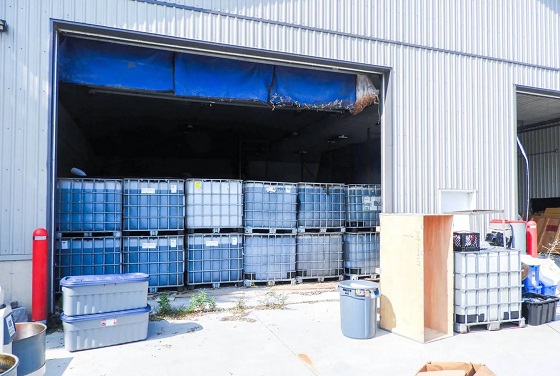Business
Australia passes social media ban for kids under 16 sparking online surveillance concerns

From LifeSiteNews
While the official goal of the bill is to protect the mental health of children and adolescents, critics have raised concerns that the bill would establish an online surveillance system for all Australians, similar to Communist China.
Australia has passed a social media ban for children under the age of 16, a seemingly prudent move but one that has raised serious concerns about online surveillance.
On Thursday, November 28, the Australian Senate passed the bill with a 34-19 vote, making it the world’s first social media ban for under-16-year-olds.
The “Online Safety Amendment Bill 2024” threatens social media companies with up to 50 million AUD (32 million USD) if they fail to comply with the requirement of verifying the age of their users.
While the official goal of the bill is to protect the mental health of children and adolescents, critics have raised concerns that the bill would establish an online surveillance system for all Australians, similar to Communist China.
“Seems like a backdoor way to control access to the Internet by all Australians,” Elon Musk wrote on X.
Journalist and free speech advocate Michael Shellenberger said that “this bill is a Trojan horse to create digital IDs, which is a giant leap into the totalitarian dystopia depicted in ‘Black Mirror,’ and already in place in China.”
The bill, which was rushed through parliament, does not give any details about how age verification will work and will not come into force until the end of next year. On November 26, the Australian Senate’s Environment and Communications Legislation Committee approved the bill under the condition that social media platforms must not force their users to give them their personal data, including information from government-issued IDs.
While this provision appears to rule out the use of Digital IDs for now, the question of how it will be enforced remains. The Guardian reports that supporters of the bill have said that platforms may use biometric methods, such as facial scans, to verify the age of its users. This would, of course, mean that social media companies would collect the biometric data of all its users in Australia.
The explanatory memorandum to the bill says that there will be “robust” privacy protections, “including prohibiting platforms from using information collected for age assurance purposes for any other purpose unless explicitly agreed to by the individual.”
“Once the information has been used for age assurance or any other agreed purpose, it must be destroyed by the platform (or any third party contracted by the platform),” the memorandum states.
However, the memorandum also explains that “compliance with the minimum age obligation” will likely require platforms “to implement systems and procedures to monitor and respond to age-restricted users circumventing age assurance.”
This suggests that social media companies could continually monitor a user while using the platform, for instance, by repeatedly doing face scans to ensure that the user is still the same and at least 16 years old.
The vaguely worded bill also does not specify which companies will be affected by the age restriction. Communications minister Michelle Rowland said that TikTok, Instagram, X, Reddit, Facebook, and Snapchat will likely be included, while YouTube will be excluded due to its educational purposes.
In addition to the under-16 social media ban requiring age verification of users, the Australian government also sought to curb speech online via a draconian “Misinformation and Disinformation Bill.” However, the government had to abandon the controversial bill after facing significant cross-party opposition in the Senate. The bill would have forced social media companies to remove information that was “reasonably verifiable as false” or if “misinformation and disinformation” could cause serious harm. The vague definitions of these terms would have allowed social media companies or the government to arbitrarily censor content it deemed unwanted.
Business
Bill Gates walks away from the climate cult

Billionaire Bill Gates — long one of the loudest voices warning of climate catastrophe — now says the world has bigger problems to worry about. In a 17-page memo released Tuesday, the Microsoft co-founder called for a “strategic pivot” away from the obsessive focus on reducing global temperatures, urging leaders instead to prioritize fighting poverty and eradicating disease in the developing world. “Climate change is a serious problem, but it’s not the end of humanity,” Gates wrote.
Gates, 70, argued that global leaders have lost perspective by treating climate change as an existential crisis while millions continue to suffer from preventable diseases like malaria. “If I had to choose between eradicating malaria and preventing a tenth of a degree of warming, I’d let the temperature go up 0.1 degree,” he told reporters ahead of next month’s U.N. climate conference in Brazil. “People don’t understand the suffering that exists today.”
For decades, Gates has positioned himself as a leading advocate for global climate initiatives, investing billions in green energy projects and warning of the dangers of rising emissions. Yet his latest comments mark a striking reversal — and a rare admission that the world’s climate panic may have gone too far. “If you think climate is not important, you won’t agree with the memo,” Gates told journalists. “If you think climate is the only cause and apocalyptic, you won’t agree with the memo. It’s a pragmatic view from someone trying to maximize the money and innovation that helps poor countries.”
The billionaire’s change in tone is sure to raise eyebrows ahead of the U.N. conference, where climate activists plan to push for new emissions targets and wealth transfers from developed nations. Critics have long accused Gates and other elites of hypocrisy for lecturing the public about fossil fuels while traveling the globe on private jets. Now, Gates himself appears to be distancing from the doomsday rhetoric he once helped spread, effectively admitting that humanity faces more immediate moral imperatives than the weather.
(AP Photo/Alex Brandon)
Stunning Climate Change pivot from Bill Gates. Poverty and disease should be top concern.
Business
Canada has given $109 million to Communist China for ‘sustainable development’ since 2015

From LifeSiteNews
A briefing note showed Canadian aid has gone to ‘key foreign policy priorities in China, including human rights, gender equality, sustainable development, and climate change.’
A federal briefing note disclosed that well over $100 million has been provided to the Communist Chinese government in so-called “foreign aid” to promote “sustainable development” that includes woke ideology such as gender equality.
As reported by Blacklock’s Reporter, a recent briefing note titled Assistance to China from May for the Minister of International Development showed $109 million has gone to “key foreign policy priorities in China, including human rights, gender equality, sustainable development, and climate change” since 2015 and $645 million since 2003.
The briefing note asked directly if funding was “going to the Government of China.”
In reply, the briefing note stated, “Canada has not provided direct bilateral assistance to Chinese state authorities since 2013, though it continues to provide small amounts of funding to international partners and non-state partners on the ground.”
Former Prime Minister Justin Trudeau came to power in 2015 and increased relations with the Communist Chinese regime. This trend under the Liberal Party government has continued with Prime Minister Mark Carney.
During a 2025 federal election campaign debate, Conservative Party leader Pierre Poilievre called out Carney for his ties to Communist China.
Conservative MP Andrew Scheer has consistently called out any money at all going to China, saying, “I don’t believe Canadian taxpayers should be sending any money to China.”
“We’re talking about a Communist dictatorial government that abuses human rights, quashes freedoms, violates rights of its citizens, and has a very aggressive foreign policy throughout the region,” he noted.
Scheer added that he has been calling on the Carney Liberals to “stand up for themselves, stand up for Canadians, stop being bullied and pushed around on the world stage, especially by China.”
Most of the money in foreign aid was spent through globalist-backed agencies such as the World Bank and the United Nations Development Program. Some 39 percent of the money was said to have gone straight to Chinese recipients, but no projects were itemized.
Other countries have received millions of dollars in foreign aid, with $2.1 billion going to Ukraine, $195 million to Ethiopia, $172 million to Haiti, and $151 million to the West Bank and Gaza last year.
Foreign aid to all nations totaled $12.3 billion.
LifeSiteNews recently reported that the Canadian Liberal government gave millions in aid to Chinese universities.
China has been accused of direct election meddling in Canada, as reported by LifeSiteNews.
LifeSiteNews also reported that a new exposé by investigative journalist Sam Cooper has claimed there is compelling evidence that Carney and Trudeau are/were strongly influenced by an “elite network” of foreign actors, including those with ties to China and the World Economic Forum.
-

 Alberta2 days ago
Alberta2 days agoPremier Smith sending teachers back to school and setting up classroom complexity task force
-

 International1 day ago
International1 day agoBiden’s Autopen Orders declared “null and void”
-

 Business1 day ago
Business1 day agoTrans Mountain executive says it’s time to fix the system, expand access, and think like a nation builder
-

 Alberta2 days ago
Alberta2 days agoThousands of Albertans march to demand independence from Canada
-

 Canada Free Press1 day ago
Canada Free Press1 day agoThe real genocide is not taking place in Gaza, but in Nigeria
-

 Business15 hours ago
Business15 hours agoCanada has given $109 million to Communist China for ‘sustainable development’ since 2015
-

 Crime2 days ago
Crime2 days agoSuspect caught trying to flee France after $100 million Louvre jewel robbery
-

 Business1 day ago
Business1 day agoCanada’s combative trade tactics are backfiring




